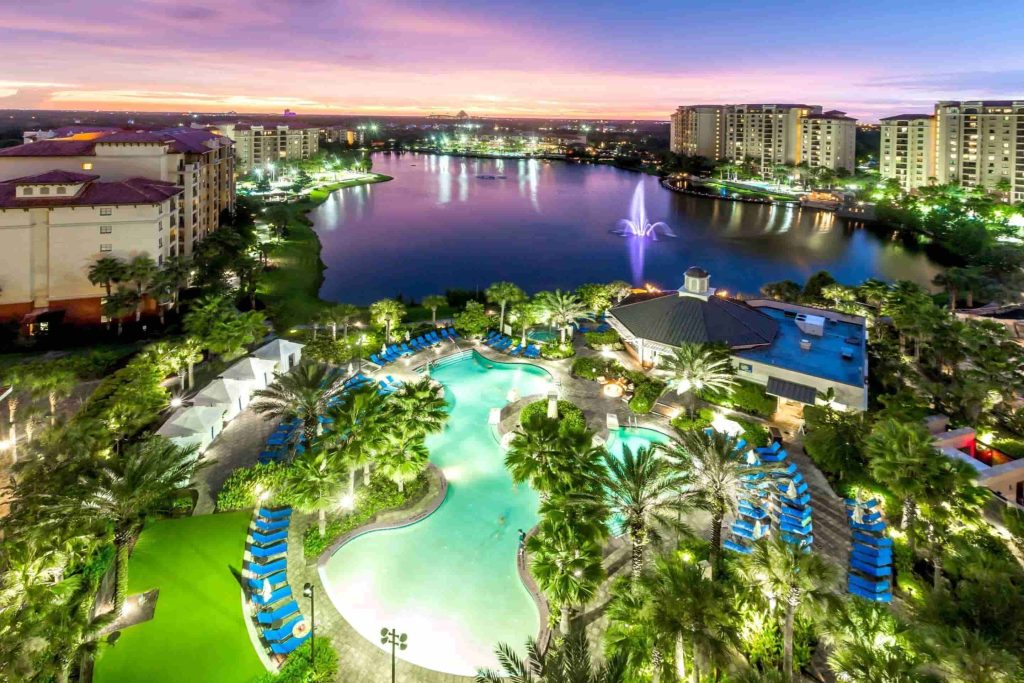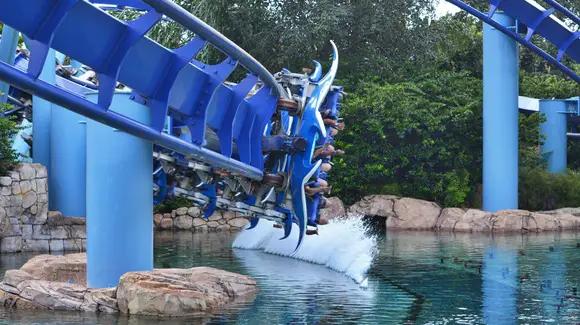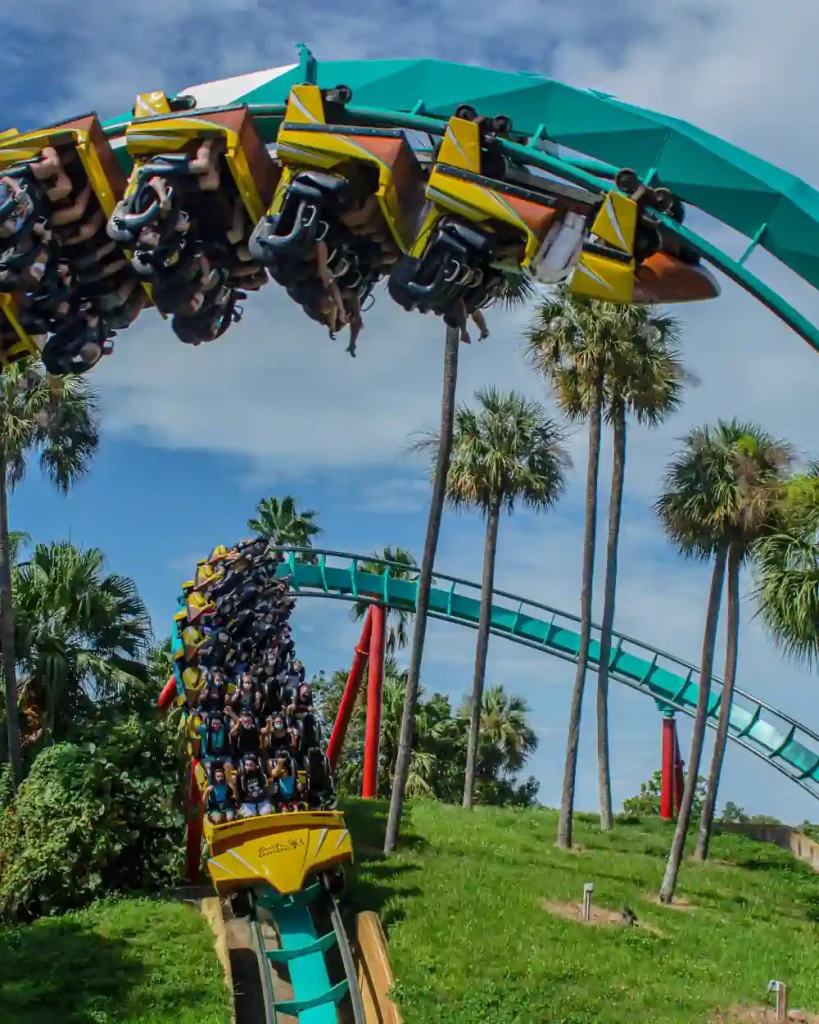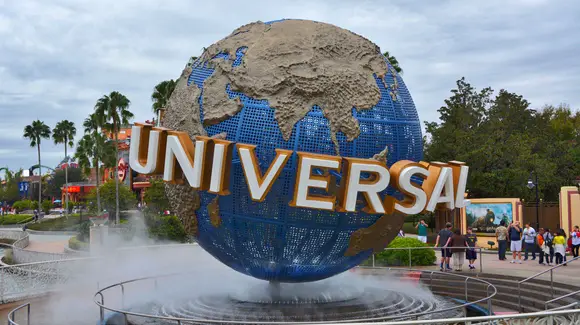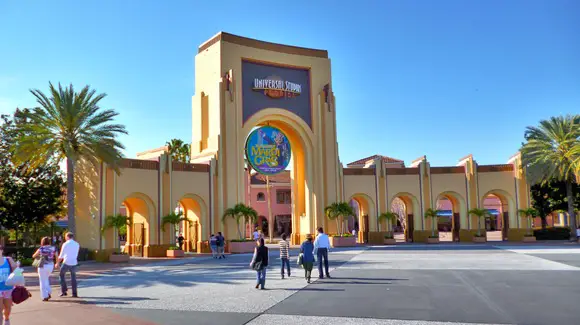Florida Timeshares
By James | Last updated August 18, 2023
This page may contain compensated affiliate links. Please read the Disclaimer for more information
One of the beauties of Florida is the wonderful year-round climate which makes it a more attractive proposition than some other holiday destinations when it comes to timeshares no matter when you visit.
In Orlando today, some 15% of all visitors stay in timeshares and there are dozen of timeshare resorts throughout Florida
History of Timeshares
The timeshare concept of fractional ownership started up in the 1960 and 1970s and for a while it had a very bad name after many people were browbeaten into buying timeshares that they were then locked into, couldn’t afford to keep up and could not sell.
After that initial financial commitment, it did not cost you anything to go on holiday every again, or so the salesperson would tell you !! In reality of course you had to pay an annual maintenance fee whether you used the timeshare or not.
In more recent times, the ethics of the timeshare business has improved greatly and many of the larger hotel chains like Disney and Marriott have got in on the act with what are now called vacation clubs and new timeshare resorts are springing up all over Florida.
Today there are over 1,600 timeshare resorts in the USA and about a quarter of them are in Florida. Nearly 6% of US households own a timeshare.
Types of Timeshare Ownership
When Florida timeshares first started, you basically bought a fixed week; one week in the same apartment every year for the same week of the year.
Of course if you had more money you could buy more than one week or buy weeks at more than one resort.
With some Florida resorts you can even buy half a week; i.e. one week every other year.
Now some timeshare companies allow you to buy floating weeks (sometimes called flex) where you buy your one week to use within a season of maybe a couple of months, booked on a first come first served basis but they cost more than a fixed week.
Seasons are banded by colour, most companies classify high season as red with mid season being white, amber or yellow and low season either green or blue. Others use precious metals from the highest season being diamond or platinum, through gold and silver to bronze, the lowest.
Bear in mind that in Florida, high season in the north may not be the same as high season in Orlando or Miami in the south.
A number of timeshare exchange program companies like Resort Condominiums International (RCI) and Interval International (II) were set up to give you the flexibility to trade your timeshare for a week at a different time or at a different resort, virtually anywhere in the world for an arrangement fee.
Now some 60% of timeshares sold today are on a points system rather than a physical week so depending on where you want to go and the time of year (low season or high season) will dictate how long you can stay and how much it will cost you in points.
Sometimes you can even exchange your points for airline flights, car rental, hotel rooms or special events, a bit like airline frequent flyer programs.
Most timeshare purchases are deeded (known as fee simple) which means you are buying an actual share of ownership of the resort and you can pass that deed onto someone else or sell it. Generally they will have no expiry but some will have an expiry and you may or may not get money back at the end.
Some are non-deeded (known as right to use, certificate or vacation-interval) and it this case you have a right to use the property for a period of time and again can pass the deed onto someone else but you do not own any property. Generally they have an expiry, like a lease; the Disney Vacation Club works this way and at the end you get nothing back.
Timeshare Presentations
Around all the major Florida hot spots like Cocoa Beach, Orlando and Miami, you will find timeshare companies trying to persuade you to invest in their timeshare resort.
Most of them will offer you an incentive to attend one of their presentations which they say will run for around 90 minutes (in reality it can be up 2 to 3 hours). Incentives range from free theme park tickets to attractions like Walt Disney World, SeaWorld and Universal Studios to discounted short stay vacation packages, often at the timeshare resort itself.
If you are genuinely interested in buying a timeshare then this can be a great way to try before you buy or if you really want those free tickets and don’t mind being given the hard sell then they can be of use but think very carefully and never sign on the dotted line at the presentation – there are a number of pros and cons to timeshare ownership and you need time to review their offer very carefully.
You will probably be vetted before you can attend to make sure you are financially sound and they will always insist on both partners being present – more opportunity to divide and conquer !!
If the company offers to drive you to their presentation, always refuse and take your own car. Otherwise you could find yourself stuck if you want to leave early.
It goes without saying, only ever deal with reputable companies, not someone you meet on the sidewalk.
Timeshare Resales
Timeshares do not really have any investment potential but if your circumstances change you may be able to sell a timeshare, though at a reduced price as the market is flooded with Florida timeshare properties for sale. It is very much a buyers market at present and fairly new timeshares often sell for less than half the current ‘market’ price.
The economic downturn has had a dramatic effect on the timeshare business, particularly at the lower end of the market. In Florida, older properties and those in less desirable areas are suffering the worst. Only the strongest brands like Disney are generally faring a little better.
With people struggling to make use of their own properties and pay the annual maintenance costs, some owners are literally giving away their timeshares. The new owners typically have to pay any closing costs, transfer fees and of course pick up the annual maintenance fees but some sellers are so desperate to offload their liabilities they will even pay some of the costs.
You will find some Florida timeshares selling for a few thousand dollars or less on Internet auction sites and through timeshare resale brokers. You will even find some with no reserve and a starting price of $1.00, but still many do not sell.
As an example, in April 2011, a deeded (non-expiring) 5 star Marriott Royal Palms 2 bedroom 2 bathroom property in Orlando sold for $1.00. 2011 maintenance fees were $1,036 plus $499 closing costs and $120 transfer fee. Total cost less than $1,700.
If you are considering a timeshare resale, check very carefully about the conditions such as whether it is deeded, a fixed week or floating week and if so what season or whether it is points based as this can greatly affect its real value and its flexibility.
Also check on whether you get all the same benefits as buying it from the original timeshare company, closing costs, annual fees, property taxes, any membership fees for timeshare exchange programs and timeshares which are approaching their expiry date if they are not deeded in perpetuity.
Unfortunately the current market conditions are also encouraging unscrupulous companies into the third party resale market and the Florida Attorney General’s Office is currently investigating a number of organisations as detailed on their website www.myfloridalegal.com.
Florida Theme Parks
Theme Park Ticket Guides
Popular Articles







![Beauty and the Beast topiary at Disney Epcot [© 2019, floridareview.co.uk, all rights reserved]](https://floridareview.co.uk/wp-content/uploads/2018/10/beauty-beast-topiary.jpg)
